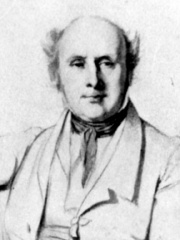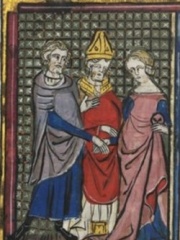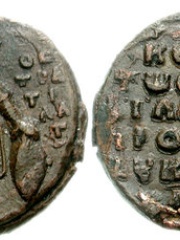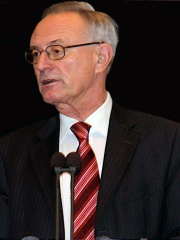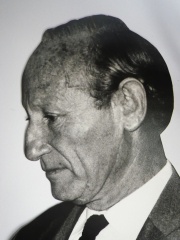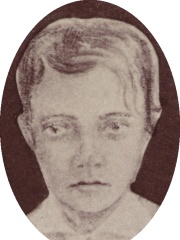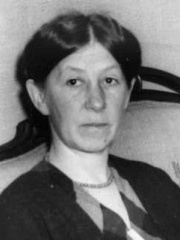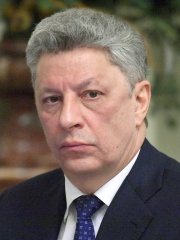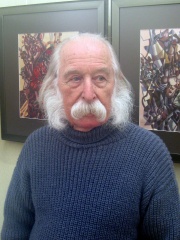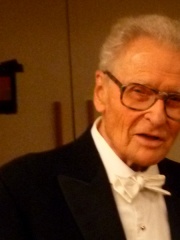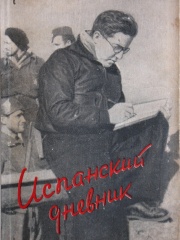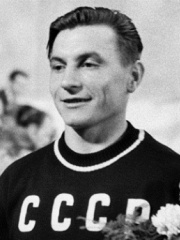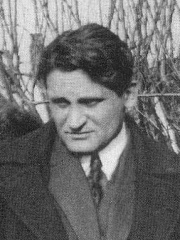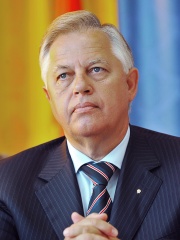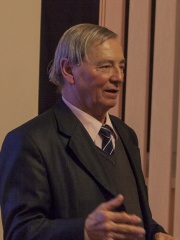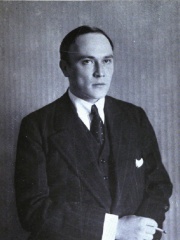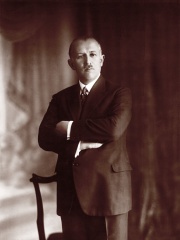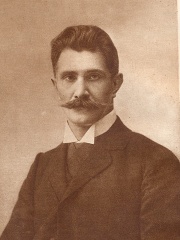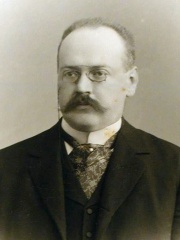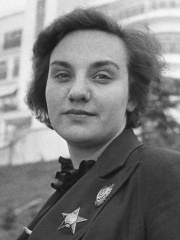Politico
Malusha
IT.WIKIPEDIA PAGE VIEWS (PV)
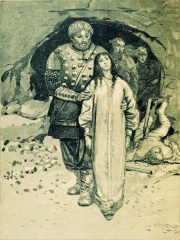
 Malusha
Malusha
La sua biografia è disponibile in 16 lingue su Wikipedia. Malusha è la 11920ª politico più popolare (in calo dal 10470ª nel 2024), la 506ª biografia più popolare dell'Ucraina (in calo dal 432ª nel 2019) e la 138ª politico più popolare dell'Ucraina.
Memorability Metrics
Page views of Malusha by language
Among Politicos
Among politicos, Malusha ranks 11,920 out of 19,576. Before her are José Alencar, Mohammed Basindawa, Charles Athanase Walckenaer, Constance of France, Princess of Antioch, Philaretos Brachamios, and Paek Nam-sun. After her are Klaus Hänsch, Haroun Tazieff, Chandra Shekhar, Ashur-rabi II, Pōmare III, and Ellen Gleditsch.
Most Popular Politicos in Wikipedia
Go to all RankingsJosé Alencar
1931 - 2011
HPI: 59.42
Rank: 11,920
Mohammed Basindawa
1935 - Present
HPI: 59.42
Rank: 11,921
Charles Athanase Walckenaer
1771 - 1852
HPI: 59.41
Rank: 11,922
Constance of France, Princess of Antioch
1078 - 1126
HPI: 59.41
Rank: 11,923
Philaretos Brachamios
1100 - 1092
HPI: 59.41
Rank: 11,924
Paek Nam-sun
1929 - 2007
HPI: 59.41
Rank: 11,925
Malusha
HPI: 59.41
Rank: 11,926
Klaus Hänsch
1938 - Present
HPI: 59.41
Rank: 11,927
Haroun Tazieff
1914 - 1998
HPI: 59.41
Rank: 11,928
Chandra Shekhar
1927 - 2007
HPI: 59.41
Rank: 11,929
Ashur-rabi II
1100 BC - 972 BC
HPI: 59.41
Rank: 11,930
Pōmare III
1820 - 1827
HPI: 59.41
Rank: 11,931
Ellen Gleditsch
1879 - 1968
HPI: 59.40
Rank: 11,932
In Ucraina
Among people born in Ucraina, Malusha ranks 506 out of NaN. Before her are Yuriy Boyko (1958), Ivan Marchuk (1936), Stanisław Skrowaczewski (1923), Mikhail Koltsov (1898), Viktor Chukarin (1921), and Yury Olesha (1899). After her are Mikhail Fridman (1964), Yury Vlasov (1935), Petro Symonenko (1952), Grigory Yavlinsky (1952), Klim Churyumov (1937), and Len Blavatnik (1957).
Others born in Ucraina
Go to all RankingsYuriy Boyko
POLITICIAN
1958 - Present
HPI: 59.50
Rank: 500
Ivan Marchuk
PAINTER
1936 - Present
HPI: 59.48
Rank: 501
Stanisław Skrowaczewski
CONDUCTOR
1923 - 2017
HPI: 59.47
Rank: 502
Mikhail Koltsov
WRITER
1898 - 1940
HPI: 59.45
Rank: 503
Viktor Chukarin
GYMNAST
1921 - 1984
HPI: 59.45
Rank: 504
Yury Olesha
WRITER
1899 - 1960
HPI: 59.43
Rank: 505
Malusha
POLITICIAN
HPI: 59.41
Rank: 506
Mikhail Fridman
BUSINESSPERSON
1964 - Present
HPI: 59.41
Rank: 507
Yury Vlasov
WRITER
1935 - 2021
HPI: 59.41
Rank: 508
Petro Symonenko
POLITICIAN
1952 - Present
HPI: 59.40
Rank: 509
Grigory Yavlinsky
ECONOMIST
1952 - Present
HPI: 59.39
Rank: 510
Klim Churyumov
ASTRONOMER
1937 - 2016
HPI: 59.36
Rank: 511
Len Blavatnik
POLITICIAN
1957 - Present
HPI: 59.36
Rank: 512
Among Politicos In Ucraina
Among politicos born in Ucraina, Malusha ranks 138. Before her are Igor Moiseyev (1906), Mikhail Tereshchenko (1886), Kazimierz Bartel (1882), Ignacy Daszyński (1866), Boris Kalamanos (1113), and Yuriy Boyko (1958). After her are Petro Symonenko (1952), Len Blavatnik (1957), Anatoliy Zlenko (1938), Alexander Trepov (1862), Sergei Stanishev (1966), and Valentina Grizodubova (1909).
Igor Moiseyev
1906 - 2007
HPI: 59.80
Rank: 132
Mikhail Tereshchenko
1886 - 1956
HPI: 59.80
Rank: 133
Kazimierz Bartel
1882 - 1941
HPI: 59.76
Rank: 134
Ignacy Daszyński
1866 - 1936
HPI: 59.66
Rank: 135
Boris Kalamanos
1113 - 1154
HPI: 59.64
Rank: 136
Yuriy Boyko
1958 - Present
HPI: 59.50
Rank: 137
Malusha
HPI: 59.41
Rank: 138
Petro Symonenko
1952 - Present
HPI: 59.40
Rank: 139
Len Blavatnik
1957 - Present
HPI: 59.36
Rank: 140
Anatoliy Zlenko
1938 - 2021
HPI: 59.33
Rank: 141
Alexander Trepov
1862 - 1928
HPI: 59.26
Rank: 142
Sergei Stanishev
1966 - Present
HPI: 59.20
Rank: 143
Valentina Grizodubova
1909 - 1993
HPI: 59.09
Rank: 144


